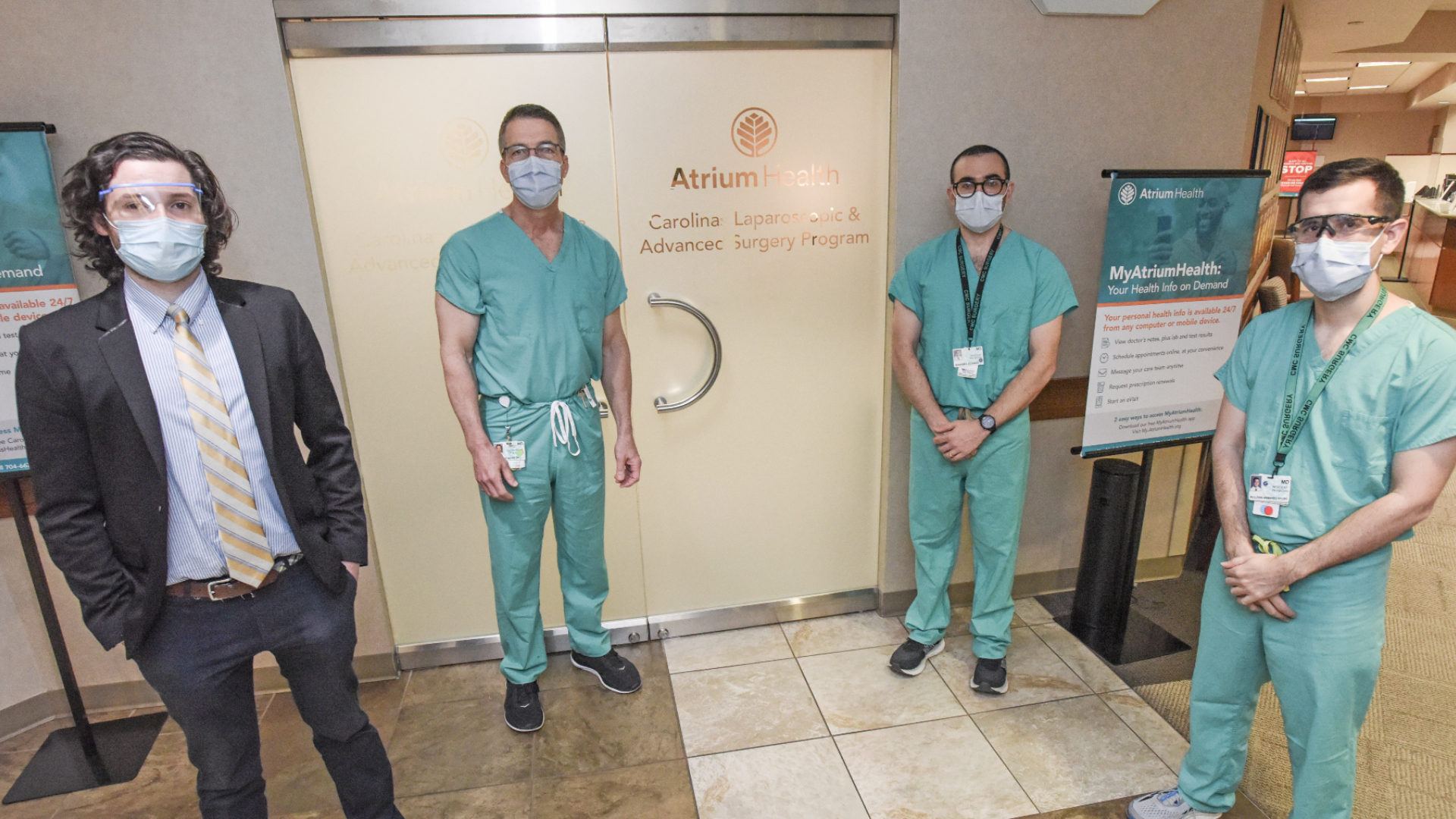
Meet the Worlds First Artificial Intelligence Tool for Predicting Hernia Surgery Outcomes
Specialty hernia centers produce better outcomes for complex cases, but there is no reliable way to predetermine which patients need specialty care. As a result, many hernia patients suffer postsurgical complications that might have been prevented.
To address this, hernia specialists at Atrium Health Carolinas Medical Center have developed the world’s first computer program that uses artificial intelligence (AI) to predict surgical complexity and future complications for hernia repair patients, based on preoperative CT scans. In testing, the program was 75% accurate at identifying patients who would need component separation, a complex operative procedure used in abdominal wall reconstruction, and almost 90% accurate at identifying patients who would develop a wound infection after surgery.
This is the first predictive tool to rely exclusively on objective data. Research behind the tool has won awards from the Americas Hernia Society and the American College of Surgeons.
“This tool could potentially help patients and surgeons make clear, educated decisions concerning if and where to have surgery and to what extent preoperative preparation is needed to prevent patients from needing additional hernia surgery or follow-up treatment,” says B. Todd Heniford, M.D., chief of the Division of Gastrointestinal and Minimally Invasive Surgery at Atrium Health Carolinas Medical Center’s Department of Surgery. “It also helps prove the value of advanced analytics in preoperative planning.”
Why Some Hernia Patients Need Specialty Care
A majority of hernia cases require straightforward operations that are appropriate for local surgeons. But 20% to 30% of patients develop complications such as wound infections or pulmonary failure. A similar number see their hernia recur, often because of wound complications or because the patient’s abdomen wasn’t completely closed during their first surgery.
Complex cases are best treated in specialty clinics, which are more likely to have surgeons trained in techniques like component separation, which is necessary to repair large or complex hernias. These clinics also have the resources to prepare for and respond to infections and pulmonary problems.
A History of Innovation
Heniford and his team at Atrium Health Carolinas Medical Center have been working on preoperative predictions for years. In 2014, they developed a free smartphone app called CeDAR, which asks patients or, more specifically, their doctors, eight health questions to calculate a percentage risk for wound problems following hernia surgery.
Their new AI model improves on the app by making more precise predictions – and by using objective, easily accessible data.
“Almost every complex hernia patient gets a CT scan,” Heniford explains. “We thought if we could base our predictions on that imagery alone, we’d have a tool that almost any surgeon in the world could use to get a clear picture of a patient’s needs.”
Predicting Surgical Complexity
To make this tool, Heniford collaborated with a comprehensive team including Vedra Augenstein, M.D., Paul Colavita, M.D., Kent Kercher, M.D., and general surgery resident Sharbel Elhage, M.D.
First, they built a neural network – the layers of algorithmic calculation that form the AI’s “brain.” Then they trained the AI by feeding it CT scans from hundreds of past patients.
“Basically, the computer taught itself what to look for in a scan in order to tell whether someone can expect a complex surgery or complication,” Heniford says.
The program reviewed each image more than 12,000 times, recording features that correspond with the need for component separation, the development of wound infection after surgery and the development of postsurgical pulmonary failure.
Finally, they tested the AI by feeding it another batch of images from past patients and asking it to identify which ones developed the three outcomes. The AI was 89% accurate at predicting infection, and its success in predicting pulmonary failure was 54.5%.
A panel of international hernia experts reviewed the same scans and made predictions about the need for component separation. The AI was 75% accurate at predicting surgical complexity, almost 15 points better than the experts.
“The computer beat us handily,” says Heniford.
Altogether, Heniford says these predictions not only identify who needs specialty care but can also help patients decide whether to pursue surgery.
“If I tell you there’s a 54% chance you’ll develop pulmonary failure as a result of this operation, you may decide against it,” adds Heniford.
Building a Brighter Surgical Future
The team will soon share the model with other institutions, to test it using images of another 100 patients. Subsequently, Heniford plans to turn it into another app.
“Imagine,” he says, “dragging an image into this program and getting three clear answers: Yes, this patient needs component separation; yes, they’ll have an infection; no, they won’t have a lung problem. That is game-changing clarity.”
The team hopes their work leads to similar models and apps in other areas with complex operations, such as liver and lung tumors.
“If we can do this for hernias, there’s no reason you can’t bring this kind of clarity to other surgeries as well,” Heniford says.
